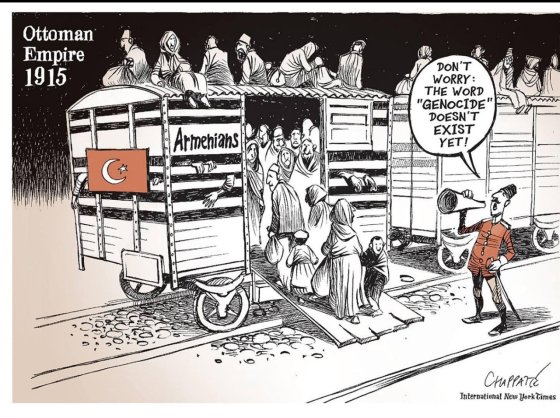
Conference co-organized by Prof. Samantha Besson, International Law of Institutions Chair, and Prof. Henry Laurens, Contemporary History of the Arab World Chair.
June 13 2025 from 9 h to 18 h 30, amphithéâtre Maurice Halbwachs, site Marcelin-Berthelot. Free admission, subject to availability.
Declareda crimefor the first time by the United Nations General Assembly in 1946, and prohibited by the 1948 Convention on the Prevention and Punishment of the Crime of Genocide, genocide is often referred to as the " crime of crimes ". Unlike the other three major crimes, which have since been codified in the statutes of the various international criminal tribunals (including the Rome Statute of the International Criminal Court (ICC) of July 17, 1998), the wording of the crime of genocide has never changed. In comparison, until recently, it was more rarely invoked. As a result, its various elements have also been more rarely interpreted in international jurisprudence, whether by ad hoc international criminal tribunals such as the International Criminal Tribunals for Rwanda or the former Yugoslavia, or by the ICC. From this permanent formulation of the crime and its comparatively limited interpretation, some have deduced a normative force among the highest in international law, a value of historical recognition of the crimes committed and, related to this, a primarily preventive role of its prohibition.
Over the last twenty years or so, however, there has been a significant evolution, thanks to international and then national criminal trials for genocide, notably in the former Yugoslavia and Rwanda. Alongside these trials, it is also the violation of the international legal obligation of States to prevent genocide that is being invoked and clarified with increasing frequency in practice. The jurisprudence of the International Court of Justice (ICJ) has developed around the obligation to prevent genocide (e.g. Croatia vs. Serbia (1999-2015), Bosnia-Herzegovina v. Serbia and Montenegro (1993-2007)). The jurisdiction clause in Art. IX of the 1948 Convention allows any State party to the Convention to refer a dispute over its interpretation to the ICJ. More and more States are making use of this possibility, including in order to obtain access to the ICJ. As a result, this jurisdiction clause is currently the basis of no less than five contentious proceedings against States and, consequently, of numerous future orders and judgments relating to the situation in Myanmar, Ukraine, Gaza and Sudan :Sudan v. United Arab Emirates (2025-) ;Nicaragua v. Germany (2024-), South Africa v. Israel (2023-), Ukraine v. Russian Federation (2022-) and Gambia v. Myanmar(2019- ).Myanmar (2019-).
Faced with this rapid evolution in international genocide practice and the new questions it raises for the conceptualization of the " crime of crimes ", a legal and historical review is in order. Given the central role played by history in various aspects of legal reasoning on genocide (e.g. as a source of custom, evidence, causality, attribution of conduct or even responsibility), it is worthwhile conducting this review in dialogue with historians. Indeed, the 1948 Convention invites jurists to work closely with historians, and even participates in their debates, since it recognizes in its preamble " that genocide has inflicted great losses on mankind at every period of history ". The value of such an assessment also applies to history, if only because this history is often written in or through justice. The question also arises of how to apply the recent (legal) concept of genocide to the shifting realities of history, particularly at a time and in places where large swathes of the past are experienced as still belonging to our present. The aim is not to deny the existence of mass exterminations in the past, but to determine whether the concept of genocide brings an additional element of historical understanding to the processes under study.
During this one-day meeting, jurists and historians specializing in genocide will engage in what we hope will be a fruitful dialogue. Their discussions will revolve around four questions of common interest for the understanding of the crime of genocide by both disciplines or practices : 1) Prohibition of genocide : from violence and " black legends " to the crime of customary law ; 2) Perpetrators of genocide : individual, collective and/or institutional ; 3) Conditions of genocide : genocidal intentions and/or processes ; and 4) Justice and truth of genocide :" past that does not pass " and " murderers of memory ". The treatment of these questions will of course provide an opportunity to look back at various cases of genocide in history, including in international law.
Speakers :Omer Bartov (Brown University) ; Monique Chemillier-Gendreau (Université Paris Cité) ; Christian Ingrao (CESPRA, École des hautes études en sciences sociales/CNRS) ; Mark Levene (University of Southampton) ; Rafaëlle Maison (IEDP, Université Paris-Saclay) ; Jean-Clément Martin (IHMC, Université Paris 1 Panthéon-Sorbonne) ; Guénaël Mettraux (Specialized Chambers for Kosovo, The Hague & University of Galway) ; William Schabas (Middlesex University, London).
